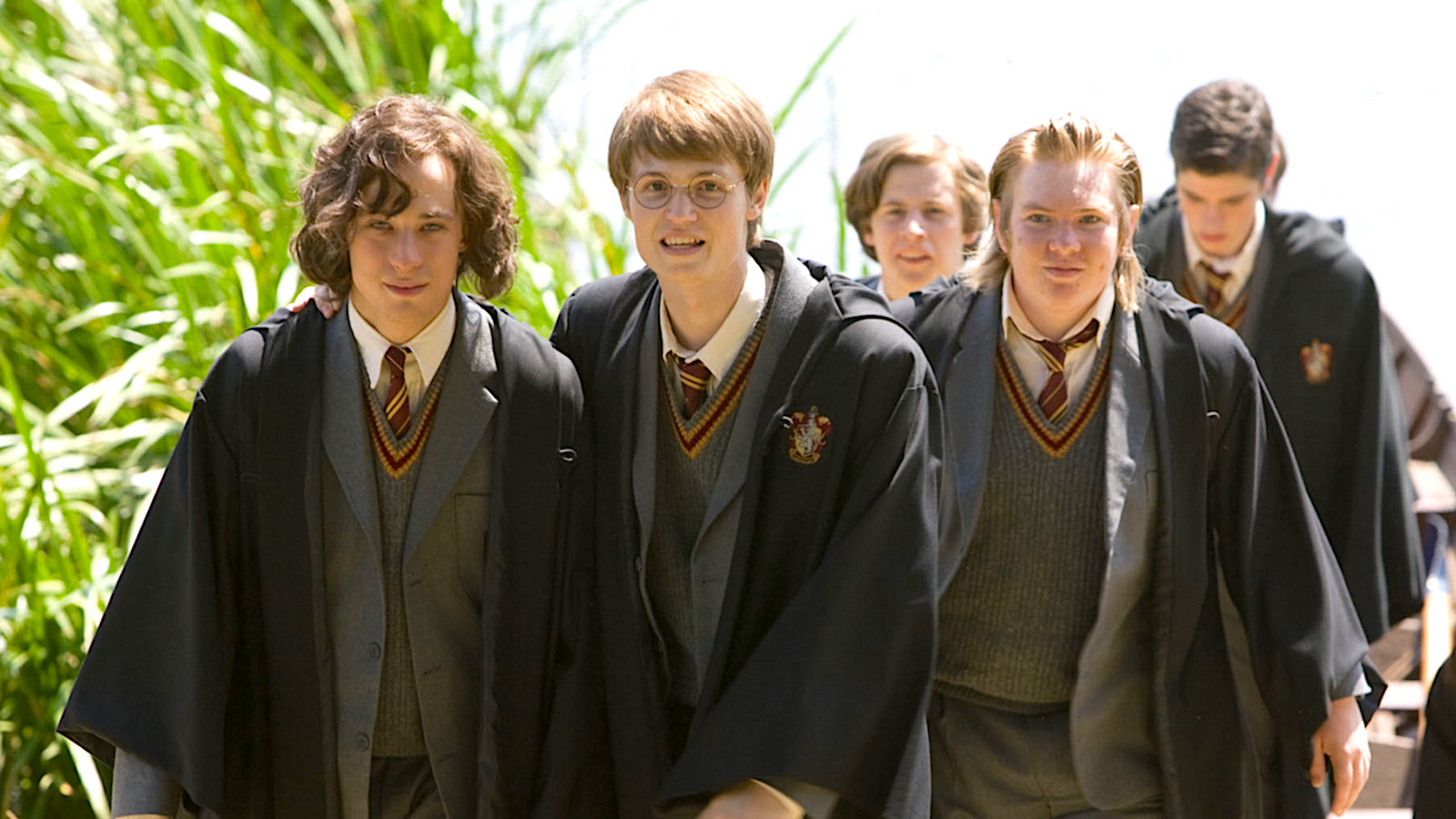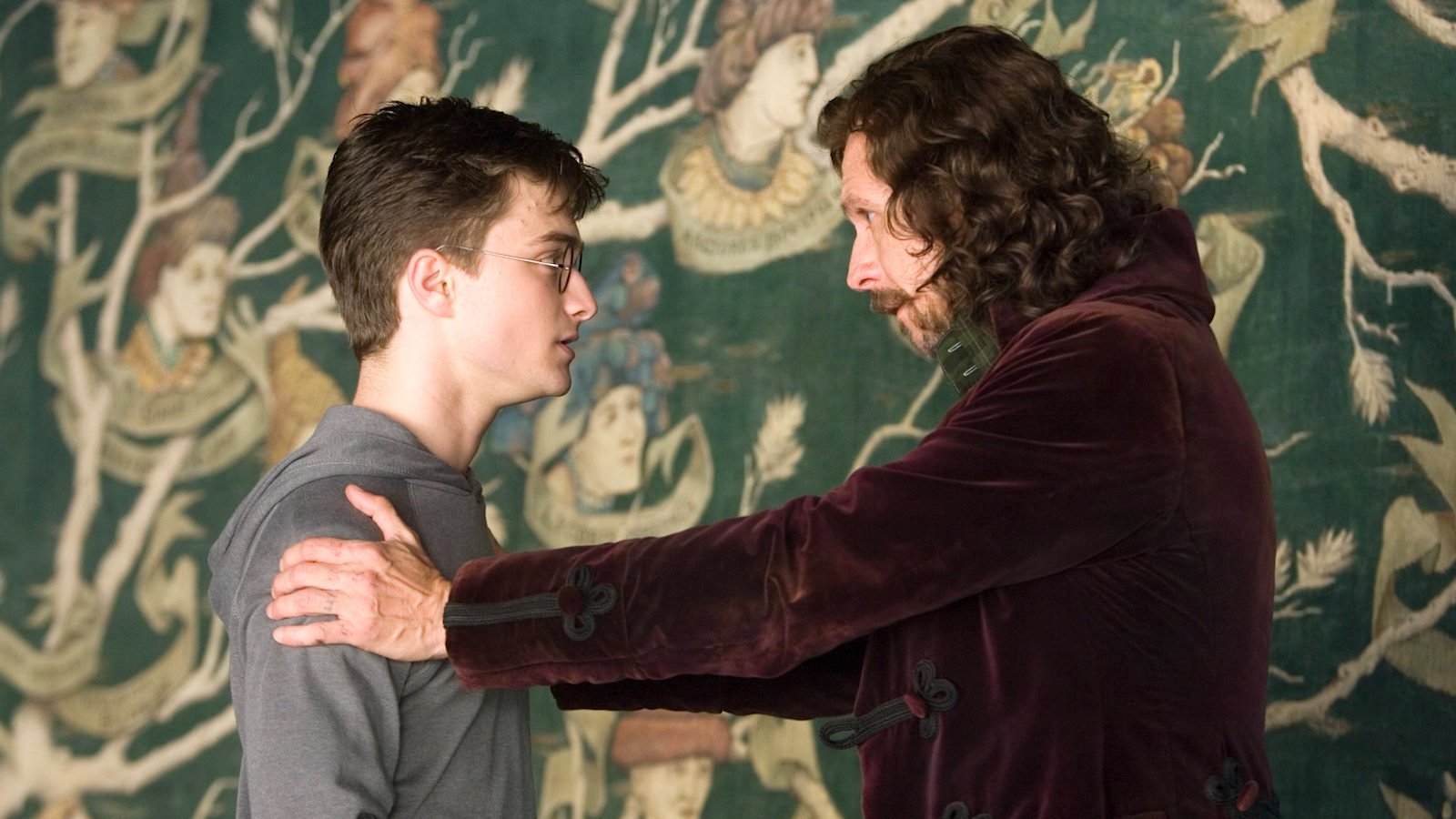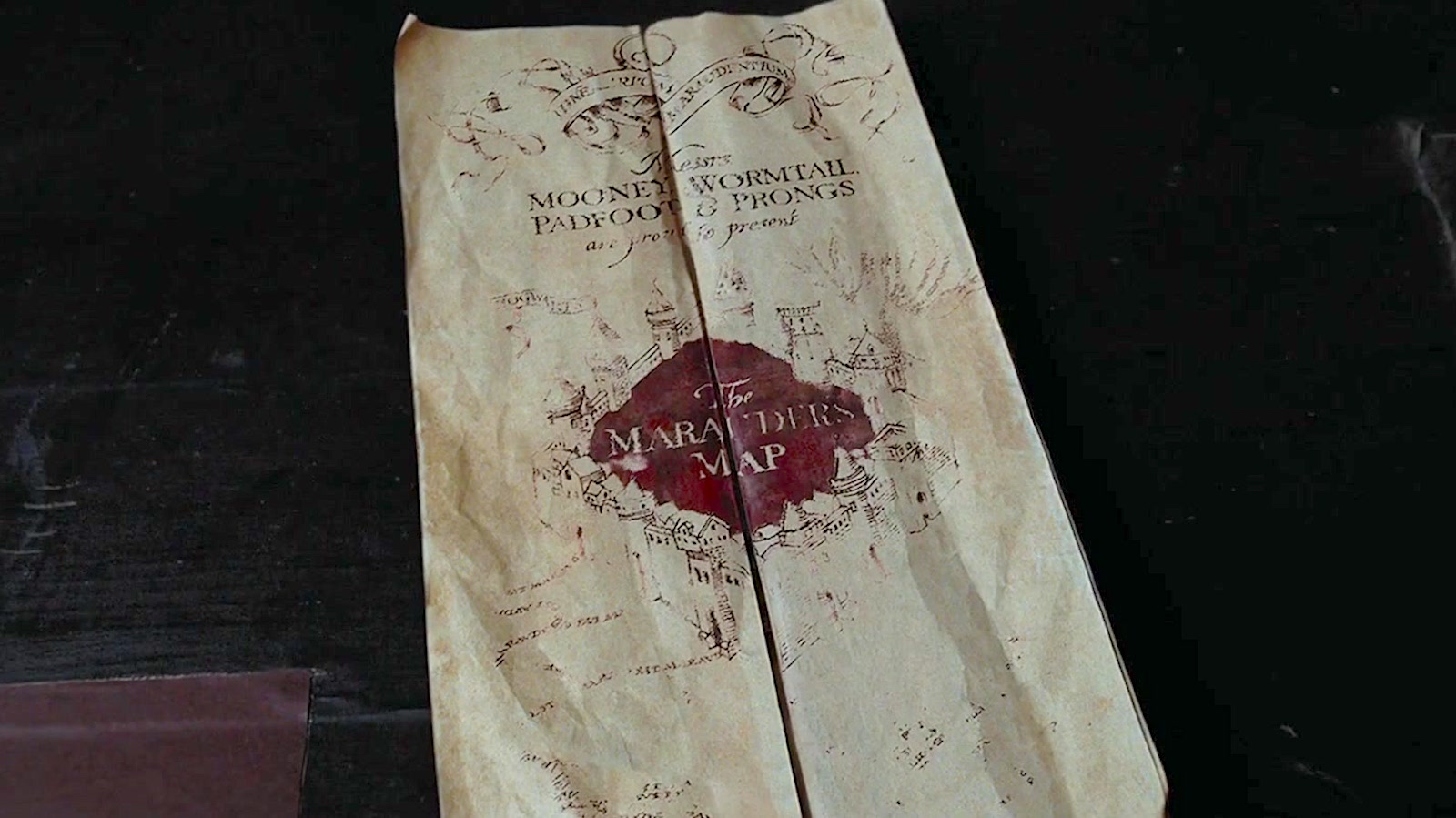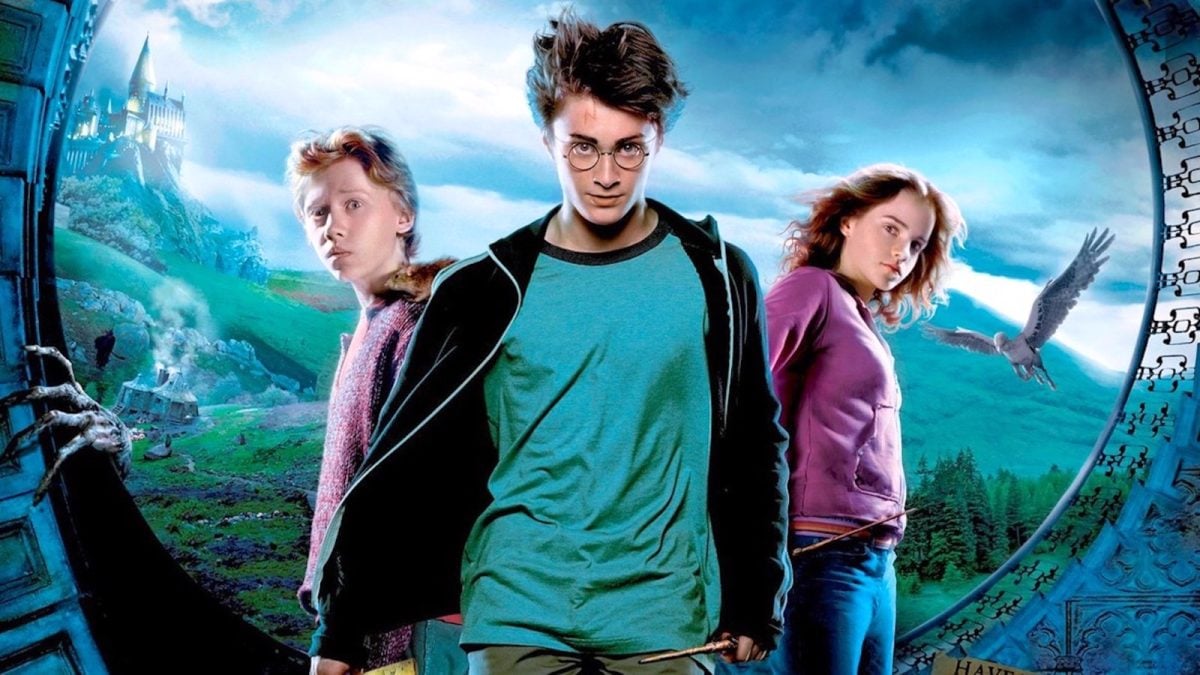If there’s anyone who could really use a win right now, it’s Harry Potter.
The boy wizard who changed literature and cinema forever has had his once-good name dragged through the mud in recent years, thanks in large part to controversial comments from his creator and three bungled attempts by Warner Bros. to breathe fresh life into the Wizarding World. The combination of J.K. Rowling’s transphobic tweets and underwhelming Fantastic Beasts films has led even the most die-hard Potterheads to abandon the books and cinematic franchise altogether.
Despite the ongoing exodus, Warner Bros. Discovery CEO David Zaslav recently announced that he wants the company to churn out even more Potter-themed content in the near future, and with Rowling back at the helm. This makes sense in light of the company’s disappointing third-quarter earnings, but is also baffling considering the legion of fans Rowling has lost as a result of her actions.
Though Zaslav did not reveal what a new Potter project might entail, his message was clear: the company is focused on fleshing out its franchises, and Potter is one of them.
While many would agree that another Potter film is unnecessary at this point, others who have resolved to separate the art from the artist might still welcome a fresh foray into the Wizarding World, preferably one that doesn’t involve Johnny Depp drama or plots as sleep-inducing as a Professor Binns lecture. It is these viewers that Warner Bros. would be wise to keep in mind when brainstorming its next Potter project, if for no other reason than it can’t afford not to. The company’s most recent Beasts film, The Secrets of Dumbledore, scored the lowest box office return in Potter history, a true indicator that fans are losing interest ⏤ fast.
So what, despite the moans and eye rolls of viewers who would encourage Warner Bros. to Expelliarmus a new Potter script right out of Rowling’s hands, would entice them to return to her world?
Daniel Radcliffe has made his views on Rowling’s outcries clear, so Harry Potter 9 seems thoroughly unlikely. An adaptation of Beasts’ companion guide, Quidditch Through the Ages, sounds about as interesting as three hours of Dobby folding socks (although maybe we wouldn’t mind that, because Dobby). We don’t need any more Grindelwald, and given that Newt Scamander was hardly the lead of his own third outing, his influence seems to be waning as well.
In a world where even young Dumbledore isn’t enough to get butts into seats, Warner Bros. needs all the help it can get if it wants to successfully relaunch the Potter machine. Fortunately for Zaslav, Rowling has one trick up her sleeve that, if deployed with a considered amount of creativity and cleverness, could get this Hogwarts Express up and running again.
We solemnly swear that we are up to no good

If Rowling is wondering how she can win favor with the fans she has left, she needn’t look any further than her third Potter novel. Harry Potter and the Prisoner of Azkaban is one of the best books in the entire series for a reason, and that reason isn’t even Harry. Think about it. What gave us all spine-tingling goosebumps when we read those pages for the first time? Was it the Dementors, hell-bent on giving Harry a soul-sucking smooch? The Grim, haunting him at every turn? The Time-Turner sequence? The chill-inducing Patronus? The realization that Scabbers was actually Peter Freaking Pettigrew ⏤ the most eye-popping twist in modern children’s literature?
Regardless of where Azkaban falls on your personal Potter ranking, the fact remains that none of the best storytelling moments in Harry’s third adventure would have existed without a key group of characters. Those characters, of course, are the Marauders ⏤ Messrs. Moony, Wormtail, Padfoot, and Prongs ⏤ and they’re exactly who Rowling and Zaslav need to breathe fresh life into the fading cinematic franchise.
Everything about the Marauders, from their code names to their various animal forms to their creation of the Marauder’s Map, drove the plot of Azkaban forward, giving readers ample opportunities to geek out over James Potter’s boyhood pals. The fact that they came into Harry’s life at a time when James couldn’t was touching in and of itself, but the fact that Sirius and Lupin actively helped Harry grow as both a young man and a wizard cemented them as integral figures in his life, not to mention instant fan favorites.
What does a good writer do when fans loudly declare their favorites? She keeps them in the series ⏤ at least until they die untimely deaths, resulting in rivers, streams, and oceans of tears. And what does a good writer do then? She gives the fans what they want and resurrects said favorites via an exhilarating origin story. Enter The Marauders.
We know how Sirius, Lupin, Pettigrew, and even James affected Harry’s story during his third year at Hogwarts, but what were their years at school like? How did they meet? What led them to dub themselves the Marauders? What inspired them to create their infamous map? Was Pettigrew always a rat, or did he have redeeming qualities as a youngster? What adventures did the boys go on together? Did anyone else at Hogwarts ever discover that James, Sirius, and Peter were Animagi? What were the Marauders even marauding?
A Marauders film ⏤ ahem, series of films ⏤ would answer all of these questions, giving valuable screen time to characters that Potter die-hards have cherished since 1999. More importantly, putting the Marauders center stage would finally give us our first real look at James Potter, who we only ever got to know through flashbacks and mentions. How exciting would it be to watch him and Sirius meet each other for the first time and learn how to become Animagi? How thrilling would it be to watch the four pals use their secret map ⏤ and perhaps even a certain Invisibility Cloak ⏤ to get into all kinds of mischief under Dumbledore’s nose?
The possibilities are endless with The Marauders, even if we already know each of the characters’ fates. Rowling has plenty of room to play here, but would the concept alone be enough to ensure box office success?
The subtle science and exact art that is filmmaking

If we learned anything from the first eight Potter films, it’s that casting is everything. Could you imagine different actors in the roles of Harry, Ron, and Hermione? Of course not. Daniel Radcliffe, Rupert Grint, and Emma Watson embodied their characters to perfection, and they were far from alone. Robbie Coltrane, Maggie Smith, Alan Rickman, and every other actor tasked with bringing one of Rowling’s characters to life did so with complete and utter mastery, a magic trick to readers who had previously only ever seen them in their imaginations (or Mary GrandPré’s illustrations).
The problem with the live-action Fantastic Beasts and Where to Find Them is that while some of the characters were referenced in the Potter books, we’d never actually met most of them and therefore did not find them as compelling or interesting as Rowling might have hoped. This is why when characters we did know appeared in later films ⏤ Dumbledore! McGonagall! Nicolas Flamel! ⏤ the sightings evoked enthusiastic whispers. We want to see characters we know, and watching them appear in a different stage of life adds another dimension to our excitement. Since the Marauders are already characters we know and love (three of them, anyway), we’d automatically be more invested going into their solo film than we were meeting all-new Wizarding World characters.
The challenge, then, would be to cast four young actors who can make us fall in love with our mischievous Messrs all over again. At the bare minimum, we would need a charismatic James, a rebellious Sirius, a secretive Lupin, and a slippery Pettigrew. We’d also need an enchanting Lily and a tortured Severus, not to mention an age-appropriate Dumbledore. If Warner Bros. wanted the movie to emit gold and red sparks, it couldn’t just toss big-name celebrities into the mix and hope for the best. As hard as it would be to catch lightning in a bottle, the company would need to hand-pick an ensemble with the gravitas and camaraderie similar to the original Potter cast. Failure to pick the absolute perfect James, Sirius, Lupin, and Pettigrew would derail the entire production and defeat the purpose of making the film in the first place.
The actors can’t do it all themselves, of course. They would need a killer script written in the franchise-launching vision of hits like Iron Man, Avatar, and Pirates of the Caribbean: The Curse of the Black Pearl in order to truly fly. A few Potter-themed nods and references won’t be enough; the script would have to reinvent the Marauders in a way that’s fresh and exhilarating but still grounded in the lore of Rowling’s universe. Each individual character would have to go on both a physical and emotional journey that alters them in some way by the film’s end, teaching viewers more about them than they ever knew previously and making them want to learn more. The overarching story, meanwhile, would need a satisfying arc in the vein of the previous Potter films while steering clear of the cheesy humor present in the Beasts films and not relying on CGI to do all the heavy lifting.
Naturally, there’s a bounty of other things that have to be taken into consideration as well: tone, pacing, costumes, budget, music, editing, cinematography, effects, etc. All of these are important, but none hold a flame to the story.
The story is what drew us to the Wizarding World in the first place, and the story is what kept us turning pages and buying tickets. Part of why the Beasts movies haven’t gelled with fans is because the storylines just aren’t exciting enough. So what if Newt Scamander lost a bunch of magical creatures in New York? Who cares if Grindelwald’s army is growing? We know how that story ends already, and while the same can be said of the Marauders’, we have little to no knowledge of exactly what they experienced at Hogwarts outside of shapeshifting, creating their clever map, and at least one love triangle. Rowling can capitalize on that by ideating fresh adventures for the boys to go on and adversaries for them to face off against.
As depressing as the final chapter in the saga might be ⏤ Pettigrew’s betrayal, Sirius’ imprisonment, James and Lily’s deaths, and Lupin’s abandonment all have to happen at some point, after all ⏤ the journey to getting there can be riddled with thrilling adventures and curveballs that teach us more about these characters we only think we know. In order for The Marauders to succeed, a significant amount of time would have to be spent at the drawing board crafting a crowd-pleasing narrative with the power to exhilarate viewers, amass hundreds of millions of dollars at the box office, and spawn multiple sequels. Rowling has worked this kind of magic before with her books, and she’s also had some valuable practice learning what not to do when writing a fresh film series. Her ability to learn from past mistakes and lean into what her audience actually wants would be the true measure of The Marauders’ success.
Mischief managed

With a bewitching cast, a spellbinding script, and a thrilling journey for its central characters, The Marauders could easily become the new franchise Warner Bros. desperately needs to win back its lost fans and relaunch the Potterverse. If the goal is to make as much money as possible, why not produce something that would actually bring fans to the theater? That is, after all, the very thing that enticed kids and adults alike to attend Harry Potter and the Sorcerer’s Stone back in 2001 and what kept us going back thereafter.
We don’t need Fantastic Beasts 4 and 5 ⏤ we need Lily Evans harboring a fierce crush on Sirius Black before even thinking about that dude with the unkempt hair. We need Peter Pettigrew coming to his friends’ rescue and Lupin spilling his darkest secret to someone with access to a shack on the fringes of Hogsmeade. We need Severus Snape discovering a penchant for potions and James Potter transforming into a stag and the looming threat of a dark wizard whose name wizards fear to speak. With a hint of creativity and a dash of innovation, this series could resurrect the magic of the original films and render the need for a fresh Potter reboot completely unnecessary.
Rowling and Zaslav don’t need a wand or an enchanted piece of parchment to know which Potter project to start on next. The proof is in the pudding, and everyone knows that pudding tastes better at Hogwarts.



